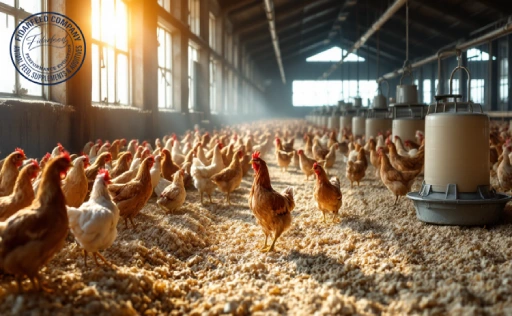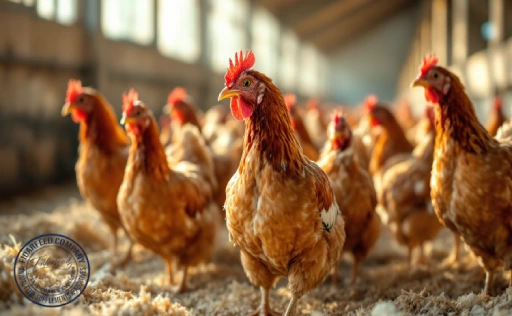
The Application of Bentonite in Fish and Shrimp Feed has emerged as a game-changer in the aquaculture industry. From stabilizing feed pellets to enhancing digestive health, the application of bentonite in fish and shrimp feed offers a wide range of practical benefits. Whether you’re operating a small shrimp pond or managing a full-scale commercial fish farm, understanding this powerful additive can dramatically improve your feed efficiency, boost aquatic animal health, and lower operational costs. In this article, we’ll take a deep dive into the application of bentonite in fish and shrimp feed, explore its scientific and practical advantages, and provide actionable insights for aquaculture success.
Why the Application of Bentonite in Fish and Shrimp Feed Matters
Bentonite is a natural clay mineral known for its remarkable binding and water-absorbing properties. In aquaculture, it’s prized for its ability to enhance pellet stability and nutrient retention.
Learn more about: Bentonite
Fish and shrimp, unlike land animals, require feed that maintains its form in water long enough for consumption. Without proper binding agents like bentonite, feed pellets may break apart, causing nutrient loss and water pollution. Moreover, bentonite aids in toxin binding and improves gut health, making it a crucial component in nutritionally balanced aquatic diets.
The Key Roles of Bentonite in Fish and Shrimp Feed Formulation
Bentonite serves several essential functions in feed formulation:
- Pellet Binder: It keeps feed particles intact, reducing feed loss and ensuring uniform consumption.
- Water Stability Agent: Prevents feed from disintegrating quickly in water, reducing nutrient leaching.
- Digestive Support: Enhances gut function by absorbing mycotoxins and heavy metals, contributing to better digestion and immunity. These characteristics make bentonite a reliable additive for both fish and shrimp feed, especially in challenging environments where water quality must be strictly managed.
Scientific Insights: How Bentonite Enhances Aquatic Animal Growth
Scientific studies have repeatedly validated the effectiveness of bentonite in aquaculture diets. For instance, a study published in Aquaculture Research (2020) showed that Nile tilapia fed diets supplemented with bentonite exhibited improved weight gain, feed conversion ratios, and overall survival rates.
Learn more about: How Are Farmed Fish Fed? Understanding Aquaculture Feeding Practices
Similarly, in shrimp, bentonite has been shown to reduce the bioavailability of harmful substances in feed, leading to healthier growth and lower mortality. These benefits are attributed not only to its physical properties but also to its ability to regulate intestinal pH and microbial balance.
Common Challenges in Aquaculture Without Bentonite
Aquaculture operations that do not incorporate bentonite often face issues like:
- Feed Disintegration: Leading to higher feed costs and poor feeding efficiency.
- Nutrient Leaching: Resulting in water pollution and increased environmental stress on aquatic animals.
- Toxin Exposure: Without bentonite, mycotoxins and heavy metals in feed may enter the animal’s system, causing poor health and reduced growth. These problems can significantly hinder productivity and profitability, especially for small-scale breeders working with tight margins.
Learn more about: Reducing Fish Mortality in Aquaculture with Probiotics
Best Practices for Using Bentonite in Fish and Shrimp Feed
To get the most out of bentonite in your feed formulation:
- Dosage Matters: Use 1-2% inclusion rate depending on species, feed type, and desired water stability.
- Uniform Mixing: Ensure even distribution to maintain feed quality and performance.
- Use Feed-Grade Bentonite: Always opt for products specifically labeled for animal feed to avoid contamination. For instance, some shrimp farms in Southeast Asia have reported better pellet durability and feed conversion after using a 1.5% bentonite inclusion rate.
Learn more about: Tips for Buying High-Quality Bentonite at Competitive Prices
Choosing the Right Grade: What Makes a Bentonite Product Suitable for Aquaculture
Not all bentonite products are created equal. When selecting one for aquaculture:
- Check Purity Levels: Look for products with low sand and silt content.
- Verify Feed Certification: Ensure it complies with international feed safety standards.
- Request Technical Data: Ask suppliers for particle size distribution, swelling index, and cation exchange capacity. These factors directly impact the product’s performance in feed stability and nutrient retention.
Learn more about: Top Bentonite Manufacturers for Animal Feed: What to Look For
The Application of Bentonite in Sustainable and Cost-Effective Aquaculture
Bentonite also plays a vital role in making aquaculture more sustainable. By reducing feed waste and improving nutrient utilization, it lowers the environmental impact of fish and shrimp farming.
Learn more about: Can Probiotics Really Boost Fish Growth in Aquaculture?
In addition, its toxin-binding properties reduce the need for antibiotics or expensive feed additives, offering a more natural and economical approach. For example, some eco-certified farms have integrated bentonite into their feed protocols to meet sustainability criteria without compromising yield.

Tips for Sourcing Reliable Bentonite for Aquaculture Feed
When buying bentonite for aquaculture, consider the following:
- Choose Reputable Suppliers: Prefer vendors who specialize in feed additives.
- Check Reviews and Certifications: Look for third-party audits, GMP certification, or ISO compliance.
- Ask About Testing: Reliable suppliers should provide lab results verifying purity, moisture, and safety levels.
- Buy in Manageable Quantities: Especially if you’re a small breeder, find suppliers who cater to low-volume buyers without compromising quality. Sourcing right ensures long-term consistency and reliability in feed results.
Learn more about: Healthy Shrimp, Higher Yields: Key Nutrients for Success
Final Thoughts: Maximizing Aquaculture Success with Bentonite
The application of bentonite in fish and shrimp feed is no longer a luxury—it’s becoming a standard practice for anyone serious about efficient, cost-effective, and sustainable aquaculture. From improving feed integrity and animal health to lowering costs and environmental impact, bentonite offers tangible benefits that breeders of all sizes can appreciate. If you haven’t yet explored this powerful feed additive, now is the time.
We’d love to hear from you. Have you used bentonite in your aquaculture operations? Share your experiences, ask questions, or leave a comment below. Let’s keep the conversation going and help each other grow.






